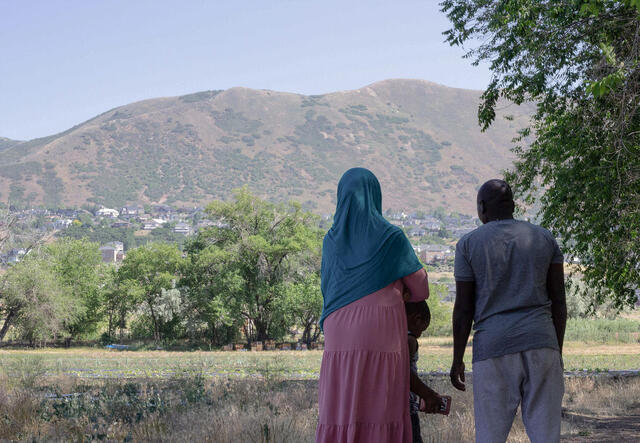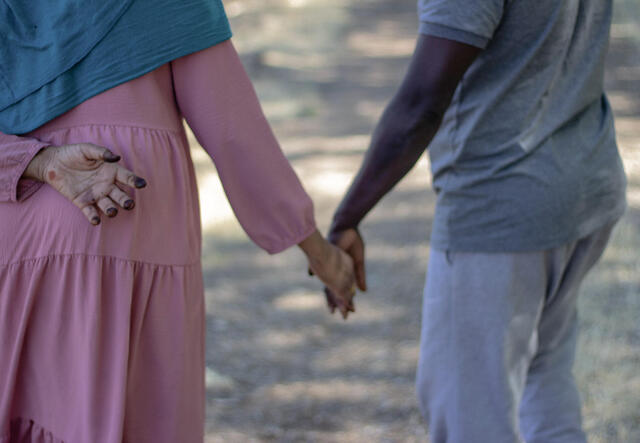When Hawaa first arrived in Utah, she had trouble finding some of the ingredients she cooked in her home country of Sudan. Molokhia leaves and okra, essential to her family’s favorite recipes, weren’t even sold in stores in Salt Lake City.
“When we first came, we couldn’t find the molokhia, we couldn’t find the okra. Never,” she explained, “now, sometimes, in Chinatown they have some. But it’s very expensive.”
Molokhia leaves, also called jute leaves, are used to make a vitamin-rich soup, often served over rice. Okra is a flowering plant with edible green seed pods. Both foods are also known for their medicinal benefits, which is especially important to Hawaa.
Since relocating to Utah in 2015, Hawaa and her husband, Yousef, have worked as farmers with the New Roots program, a mainstay of the International Rescue Committee (IRC) in Salt Lake City. By doing this work, they can provide their family with fresh, healthy food, including their favorite crops from their home country.

Yousef grew up farming in Darfur, but Hawaa had never done it before. Starting with a small garden in their backyard, she was a natural and was soon invited to try farming on a larger scale.
“Now I have a lot of experience,” she said. “I can do anything by myself.”
The couple now farms on a large plot of land at the New Roots Wheadon site in Draper. Here they can grow the food that they love and also sell their crops via wholesale and at local markets, earning supplemental income for their family in the process.
Hawaa has extensive knowledge of the medicinal properties and health benefits of the food they grow. Okra, for example, can be eaten to help lower blood sugar for people with diabetes. Back in Sudan, these remedies were well known among her community members. She’s put these remedies to good use since coming to Utah as well. When her daughter was diagnosed with kidney disease, Hawaa gave her a smoothie with beets, avocado, and banana every day.
“She had high blood pressure, she had anemia,” Hawaa said. “I gave her that for 10 days and when I went to the doctor they said, ‘the anemia is gone. What did you give her?’ I said, ‘I gave her beets.’”
Growing these useful and familiar crops has been an important part of adjusting to life in a new country. And though some of the vegetables were new to them, they can still replicate the familiar flavors of home.
Yousef and Hawaa’s favorite dish to eat as a family is okra stew, made from chopped okra cooked in a homemade tomato sauce. It’s a popular meal in Sudan that they can make with their fresh garden vegetables.
“We put one onion, a little bit of meat, any meat you want,” said Hawaa, “after that, put two tomatoes in a cup for the sauce... [add] a little salt and then cover. Then, you cut your okra, a lot of okra... after it boils for 30 minutes, put a little bit of garlic and black pepper. Eat with rice, tortilla, bread, anything you want.”
Even though they’re now living thousands of miles from Sudan, their plot of land at the New Roots farm lets Yousef and Hawaa grow everything they need to recreate the tastes of home thousands of miles away. Their recipes and remedies are here to be shared with their children, friends, and fellow community members in Salt Lake City.

Learn more about New Roots by visiting NewRootsSLC.org. You can also support farmers like Hawaa and Yousef at the Sunnyvale Farmer’s Market, every Saturday through October from 10:30am to 1:30pm at Sunnyvale Park located at 4013 South 700 West in Millcreek.
